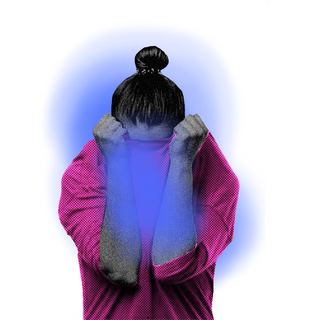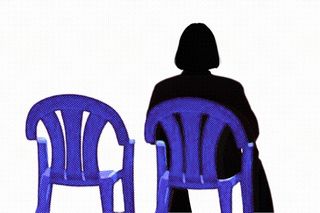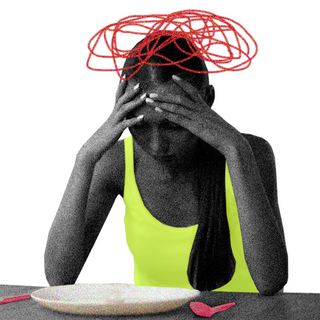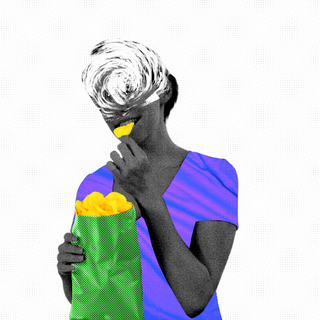
Loneliness and Social Isolation Can Increase the Risk of Heart Attacks, Shows Study
Besides the pandemic-spawned isolation, rise in social media use can also lead to loneliness by reducing meaningful in-person interactions.

Loneliness isn’t just a source of immediate emotional distress. It can also impact people’s physical health in the long term, according to a new study.
Published in the Journal of the American Heart Association yesterday, the study is based on a review of past research on social isolation acrossfour databases — PubMed, PsycInfo, Cumulative Index of Nursing and Allied Health, and Scopus. Besides its impact on heart and brain health, the lack of social connection was also found to increase the risk of premature death. When experienced in childhood, loneliness was also associated with increased cardiovascular risk factors — like obesity, high blood pressure, and increased blood glucose levels — manifesting in adulthood.
“Over four decades of research has clearly demonstrated that social isolation and loneliness are both associated with adverse health outcomes… [They] are also associated with worse prognosis in individuals who already have coronary heart disease or stroke,” said lead author Crystal W. Cené, who is the chief administrative officer for health equity, diversity, and inclusion at the University of California San Diego Health.
We know that age, which can accompany widowhood and retirement, increases the risk of loneliness. But what makes the study’s findings especially relevant at the moment is that “a small but significant increase in loneliness” was recorded among people of diverse age groups during the pandemic, according to an inter-continental study from May that involved 2,00,000 participants. And given we can’t really predict the course of Covid19 or other infectious diseases like monkeypox, it’s important to understand the impact of safety measures, like social distancing and isolation, on people’s long-term mental and physical health.
Related on The Swaddle:
Why Some People Feel More Lonely Than Others
Isolation doesn’t just mean being alone in the physical distancing sense; it also includes the alienation people may experience in their lives — even virtually. The rise in social media use can also lead to isolation by getting in the way of meaningfully engaging with in-person activities. Not only that, but it can also induce a sense of loneliness for people when they see their connections participating in social activities that they aren’t part of.
At this juncture, then, the present findings could urge practitioners to consider the impact of loneliness and social isolation while treating patients. “There is an urgent need to develop, implement and evaluate programs and strategies to reduce the negative effects… for at-risk populations,” noted Cené.
This will involve clinicians asking patients about “the frequency of their social activity and whether they are satisfied with their level of interactions with friends and family. They should then be prepared to refer people who are socially isolated or lonely — especially those with a history of heart disease or stroke — to community resources to help them connect with others.”
However, the fact remains that socializing can, in fact, be stressful for many. Often, neurodivergent individuals and people living with social anxiety, among others, report that social interactions can be stressful and overwhelming. It is the pandemic isolation that led many of them to realize how much better they felt being just on their own — basically, social isolation doesn’t necessarily spell loneliness for them.
Related on The Swaddle:
How Extreme Self‑Focus Can Prevent ‘Shy’ People From Bonding With Others
As past research has shown, stress, too, can increase the risk of both heart attacks and strokes. Experts note that loneliness itself is a form of stress since it increases the level of the stress hormone, cortisol. As such, the choice between social isolation and enduring the stress that comes with social anxiety might feel like choosing between the devil and the deep blue sea.
One might wonder, though, whether social isolation is indeed as harmful to people who don’t enjoy socializing — at least, not frequently. Cené says, “Although social isolation and feeling lonely are related, they are not the same thing. Individuals can lead a relatively isolated life and not feel lonely, and conversely, people with many social contacts may still experience loneliness.” Unfortunately, though, as she admits, “It is unclear whether actually being isolated (social isolation) or feeling isolated (loneliness) matters most for cardiovascular and brain health because only a few studies have examined both in the same sample.”
Perhaps, further research will enable us to understand whether the impact of social isolation on heart and brain health is consistent for people across the board. Studying the mechanisms behind the impact might help in that regard, Cené hopes.
Devrupa Rakshit is an Associate Editor at The Swaddle. She is a lawyer by education, a poet by accident, a painter by shaukh, and autistic by birth. You can find her on Instagram @devruparakshit.
Related


Scientists Link Specific Eating Disorders to Different Kinds of Childhood Trauma
